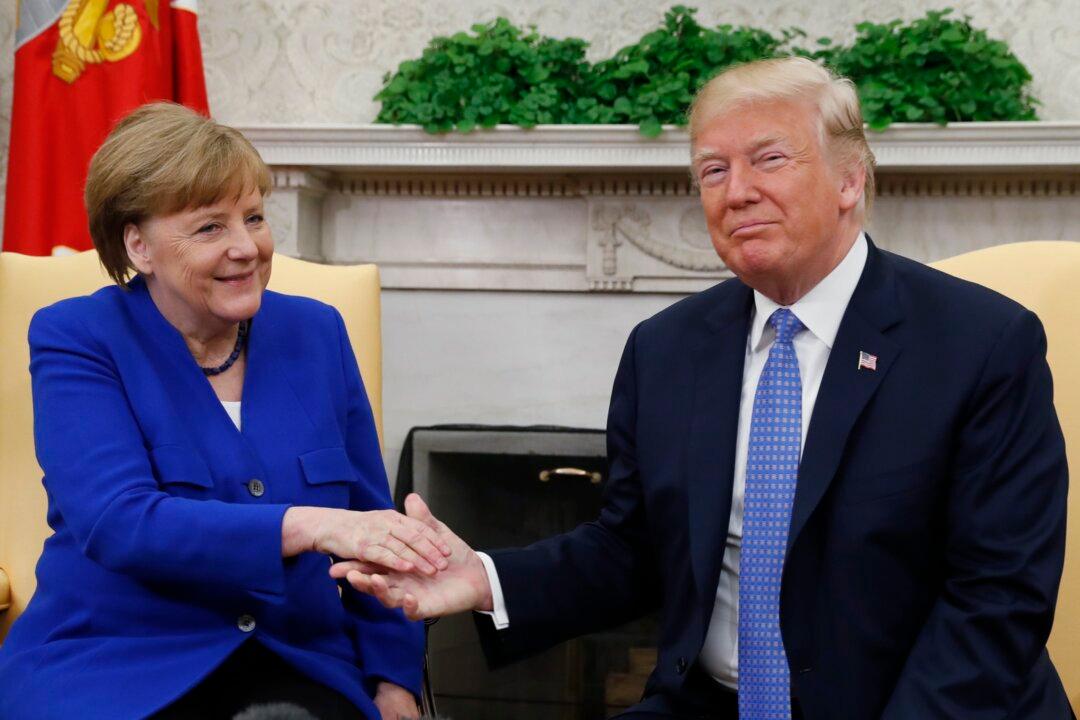WASHINGTON—German Chancellor Angela Merkel and U.S. President Donald Trump put on a display of warmth and friendship during a White House meeting on Friday despite differences over trade and Iran that have sparked tensions between the two allies.
After their last White House meeting drew attention when the two leaders did not shake hands in the Oval Office, Trump made a point of doing just that, twice, while congratulating the German chancellor on her election win.





